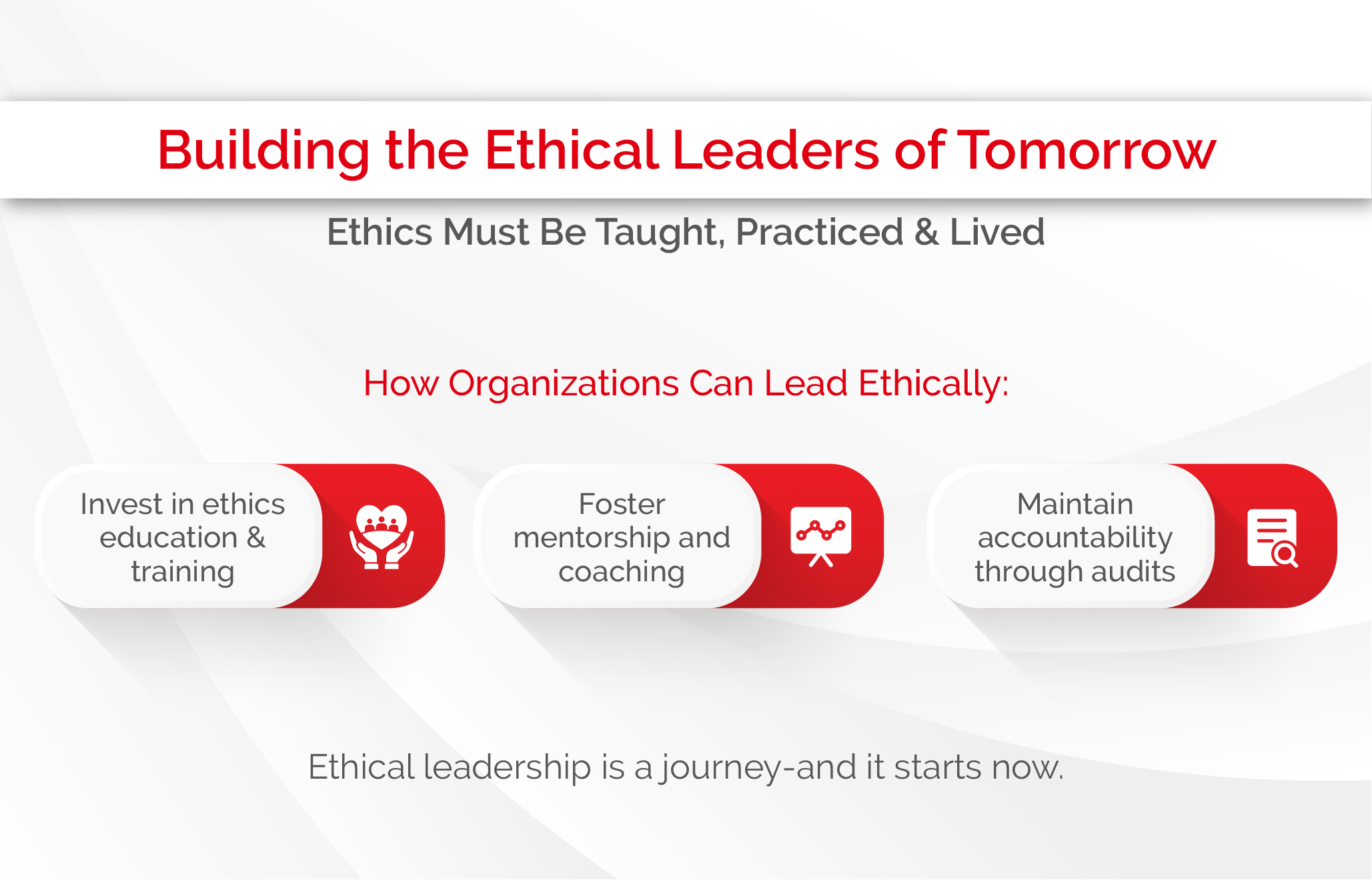Leading with Ethics: Overcoming Challenges and Driving Sustainable Change | Part 2
Dr. Elizabeth Devasia, Sr. Assistant Professor
In an era where ethical business practices are more important than ever, leaders must navigate complex challenges to uphold their values. Ethical leadership is not just about good intentions; it requires continuous learning, accountability, and a proactive approach to decision-making.
Developing Ethical Leaders
Organizations must invest in the next generation of ethical leaders by integrating ethics into education, mentorship, and professional development.
1. Educational Programs and Ethics Training
Many business schools and corporate training programs now emphasize ethical decision-making. Case studies, role-playing, and real-world scenarios help leaders understand the consequences of their choices.
2. Mentorship and Coaching
Pairing emerging leaders with experienced mentors provides invaluable insights. Ethical dilemmas often require nuanced decision-making, and mentorship helps leaders navigate these challenges with confidence.
3. Accountability and Transparency
Ethical leadership thrives when organizations prioritize accountability. Regular assessments, ethical audits, and open discussions about ethical dilemmas help leaders stay aligned with core values.

Challenges in Ethical Leadership
Even the most well-intentioned leaders face ethical dilemmas that test their values and decision-making skills.
1. Navigating Ethical Dilemmas
Conflicts often arise between short-term profitability and long-term ethical commitments. Leaders must weigh decisions carefully, ensuring they align with the company’s values and societal expectations.
2. Responding to Corporate Scandals
When ethical lapses occur, transparent and swift action is crucial. Companies must own their mistakes, implement corrective measures, and rebuild stakeholder trust.
3. Balancing Profitability and Principles
Leaders often face pressure to prioritize financial performance. Ethical leadership demonstrates that profitability and responsible business practices can coexist, leading to sustainable success.
(2).jpg)
Case Studies: Ethical Leadership in Action
Success Stories
- Patagonia: The company’s commitment to environmental sustainability sets a gold standard for ethical business practices. By prioritizing fair labor and sustainable sourcing, Patagonia has built a loyal customer base that values both quality and ethics.
- Johnson & Johnson: During the Tylenol crisis, Johnson & Johnson prioritized consumer safety over profits, recalling products and openly communicating with the public. Their ethical response restored consumer trust and reinforced the value of ethical decision-making.
Lessons from Ethical Failures
- Enron: A classic example of unethical leadership, Enron’s corporate fraud scandal led to bankruptcy and widespread industry reforms. It highlights the devastating consequences of unethical practices.
- Volkswagen: The emissions scandal, where Volkswagen manipulated environmental data, resulted in financial losses and reputational damage. This case underscores the importance of long-term ethical commitment over short-term gains.
Emerging Trends in Ethical Leadership
Modern businesses are increasingly embracing ethical practices through innovation and technology.
1. Corporate Social Responsibility (CSR)
Companies are integrating ethical considerations into their business models, focusing on sustainability, diversity, and social impact.
2. Blockchain for Transparency
Blockchain technology is enhancing supply chain transparency, ensuring ethical sourcing, and increasing consumer trust.
3. Ethical AI and Decision-Making
As artificial intelligence becomes more prevalent in business, ensuring ethical AI practices is crucial for maintaining fairness and accountability in automated decision-making.
Final Thoughts: Leading with Purpose
Ethical leadership is not a destination but a continuous journey. Leaders who commit to integrity, fairness, and responsibility inspire trust and drive meaningful change in business and society. By embracing ethical principles, organizations can navigate challenges, build sustainable success, and create a positive impact on the world.
